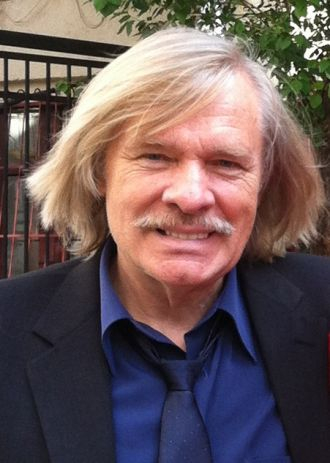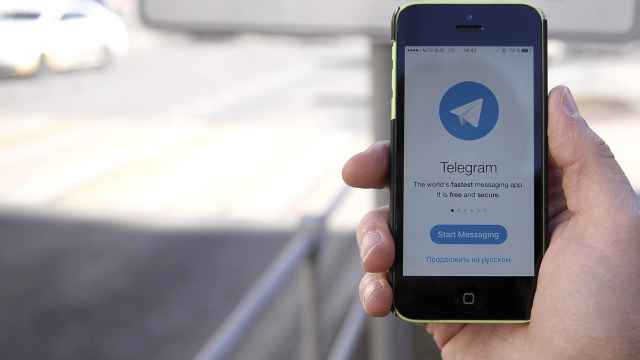Before his emigration from the Soviet Union in 1985, Oleg Vidov was a successful actor, most famous for starring in the lead role of a brave romantic cowboy in the popular adventure film "Headless Horseman."
Today, following an acting and business career in the United States, Vidov has found a new opportunity as an owner of the Malibu Beach Recovery Center in California — a family-run clinic for alcoholics and drug addicts located in a two story mansion in the hills.
He started the business in 2007 together with his American wife Joan Borsten, a former journalist for leading U.S. newspapers who is now the chief executive officer of the center. "We knew nothing about addiction, it was accidental," said Borsten, sitting next to her husband during an interview in a Moscow hotel on the occasion of Vidov's visit to his homeland last month.

For MT
Vidov, 70, said the venture was new for him even on the personal level, as he never had problems with drinking — unlike his character Maurice Gerald, a cowboy from the 1973 Soviet film adaptation of a story by Irish writer Mayne Reid. Vidov also played in several films in the United States, among them "Red Heat," starring Arnold Schwarzenegger in 1988.
He said, however, that while they were getting the clinic up and running he recalled his part-time work as a male nurse in a Soviet hospital during his youth. "I used to carry people on a litter, and I knew that a person's life often depended on how fast we would bring him into an emergency room," said Vidov who added that he finds it "noble to help people."
Vidov and Borsten got into the rehab business on the advice of a Russian family member.
Borsten declined to speak about the family member who started the business with them, but a source familiar with the situation said that it was the well-known Russian pharmacologist Yakov Marshak, who also runs several treatment centers in Russia. Marshak exited the partnership with Vidov and Borsten soon after his daughter divorced Vidov's son.
"So we bought out our partners and began to turn the business around. It took several years," said Borsten who said the first years were difficult because of the situation in US economy.
"In the middle of economic crises, we started a business we knew nothing about," said Borsten, referring to the Wall Street collapse in 2008.
Borsten said she decided to keep the business because she and her husband had invested a fortune in it. She declined to provide an exact figure, but said it was "a lot of zeroes."
The first clients were members of Screen Actors Guild, friends of the friends of Borsten who had many connections in the film industry, who knew her through her earlier work as a journalist for Hollywood Reporter.
According to market figures, the U.S. drug and alcohol rehabilitation industry now sees revenues of $7.5 billion annually.
Vidov and Borsten have been business partners for many years, founding a company called Film by Jove that used to hold the foreign rights for classic Soviet-era cartoons. The couple sold them in 2007 to billionaire Alisher Usmanov, who reportedly paid several million dollars for it.
It's in the Brain
The center, which has two facilities — one for addicts and another one for women who were victims of rape — can treat up to 14 people monthly. The 30-day addict recovery program consists of detoxification, a special diet, yoga classes and counseling.
The center, Borsten said, bases its treatment methods of therapy pioneered by Dr. Kenneth Blum — a specialist in neuroscience who claimed to discover a direct link between genetics and addiction in the 1990s. "In the beginning, people thought that alcohol was a social disease, and science has shown it is a chronic brain disorder. Around 20 percent of Americans have those addict genes," she said.
Blum found in his research that there is a link between the levels of dopamine — an organic chemical within human brains, responsible for motivation and motor control — and use of alcohol and drugs. The study said some people with chronically lower levels of dopamine were trying to increase it with alcohol and drugs. Treatment should include healthy activity, like special kinds of yoga that could help patients to increase their brain's production of dopamine.
While some scientists have doubted Blum's findings, his research found support with the American Society of Addiction Medicine, which redefined addiction to alcohol, drugs, gambling or other matters as a chronic brain disorder and not just a result of "bad behavior," said a statement by the society released in 2011.
Blum joined the Malibu center as a neuroscience advisor last year to conduct studies on some of its patients and help draft recovery programs for them.
French Flavor
Unlike some clinics in Russia who use strict methods and hard discipline against drug users, the Malibu Beach Recovery Center treats its patients with a delicious cuisine, prepared by a French chief. The menu includes such entries as "Salmon with Pink Peppercorn Tartar Sauce" and "Chili-Rubbed Tilapia Fillets."
Borsten says the luxury diet is an effective treatment system. "If you have diabetes, doctors always tell you change your diet and exercise program. The same happens with addiction. You can't cure it, but changing the lifestyle of people can put them into remission," she said.
She added that some patients wind up coming back to the center. "But 75 percent of those who pursue a healthy lifestyle stay sober," she said.
The clinic patients also have to practice three hours of yoga every day, taught by lead instructor Oleg Flow, an emigre from Ukraine who changed his last name from Yevseyev to sound more American. Flow, whose father was an alcoholic, said yoga helped him to overcome depression.
Despite the $40,000 bill for a month's treatment at the Malibu Beach recovery center, it has proved popular with many wealthy people, some of them of Russian decent. "One of them asked where his father could land his Boeing," said Borsten, who added that the center is already breaking even.
Edward Shut, an American whose parents came from the Soviet Union, said he found the clinic "by accident" while looking to cure his addiction to prescription drugs. "I was educated about proper nutrition and exercise. I had a chef prepare all my food, which was always amazing. The atmosphere was also amazing. A private mansion in the Malibu Canyons where you have the most serene scenery and a quiet setting, that was perfect for getting sober," Shut said in an interview.
Russian-Americans and patients from Russia are attracted by Vidov's name. The actor is still stopped on the streets for autographs in his native country. The other part of the attraction is the clinic's Russian speaking staff, such as Doctor Yekaterina Slobodchikova, a former Muscovite who specializes in treating psychological trauma.
Slobodchikova who also studied medicine in Russia and in the Unites States and has lived there since the 1990s, said many of the Russian-Americans preferred to speak English with her.
"It is much easy for them to speak about their problems in a foreign language. It is easier to say "I am an addict" than to say in Russian "I am a drug user," she said.
But, she said, there are moments when it's better to speak Russian. "It is much easier to work with their trauma in their mother tongue," Slobodchikova said.
Contact the author at [email protected]
A Message from The Moscow Times:
Dear readers,
We are facing unprecedented challenges. Russia's Prosecutor General's Office has designated The Moscow Times as an "undesirable" organization, criminalizing our work and putting our staff at risk of prosecution. This follows our earlier unjust labeling as a "foreign agent."
These actions are direct attempts to silence independent journalism in Russia. The authorities claim our work "discredits the decisions of the Russian leadership." We see things differently: we strive to provide accurate, unbiased reporting on Russia.
We, the journalists of The Moscow Times, refuse to be silenced. But to continue our work, we need your help.
Your support, no matter how small, makes a world of difference. If you can, please support us monthly starting from just $2. It's quick to set up, and every contribution makes a significant impact.
By supporting The Moscow Times, you're defending open, independent journalism in the face of repression. Thank you for standing with us.
Remind me later.





